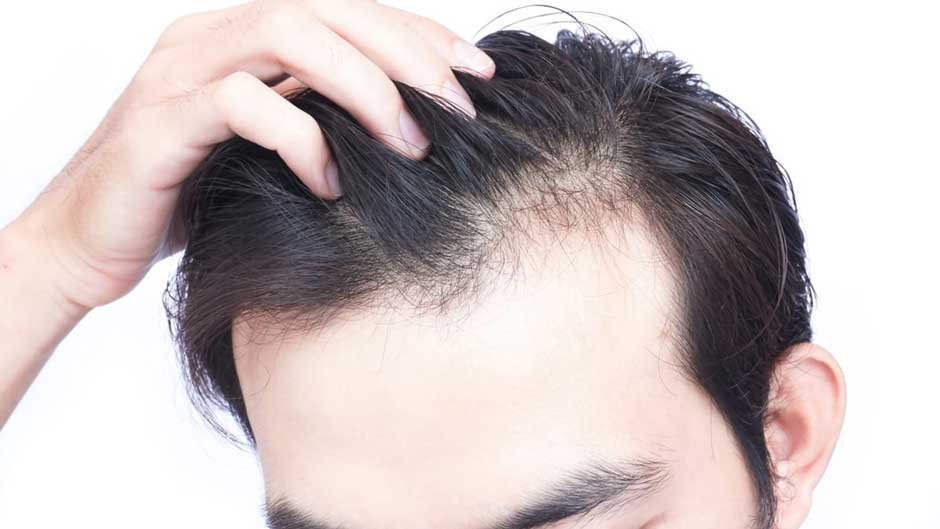Hair loss is a natural phenomenon that many of us encounter as we traverse the journey of life. It’s a silent companion that creeps in, often unnoticed, as the years roll by. For some, it’s a subtle whisper, a slight thinning here and there; for others, it’s a loud proclamation, leaving visible patches of scalp where once there was a lush mane.
Regardless of its approach, hair loss can be a source of distress, affecting our self-esteem and confidence. In this article, we will explore various strategies to cope with hair loss, delving into the emotional and practical aspects, and shedding light on potential treatments.
Understanding Hair Loss
Hair loss, medically known as alopecia, is not merely a cosmetic concern; it’s a complex condition intertwined with our biology, genetics, and environment. It’s essential to comprehend that hair loss is not a one-size-fits-all scenario; it manifests differently in each individual, influenced by a myriad of factors including age, hormonal changes, and stress levels.
The journey to embracing hair loss begins with acceptance. Acceptance doesn’t signify resignation; rather, it’s the acknowledgment of change, an opportunity to adapt and explore new perspectives on beauty and self-worth. It’s about fostering a positive mindset and embracing our evolving selves with grace and resilience.
The Emotional Journey
Embarking on the journey of hair loss can evoke a spectrum of emotions, from denial and anger to acceptance and empowerment. It’s crucial to navigate these emotions mindfully, acknowledging our feelings without letting them dictate our self-worth. Engaging in open conversations about hair loss can dismantle the stigma associated with it, creating a supportive community where individuals can share their experiences and insights.
In the realm of emotions, it’s pivotal to cultivate self-love and compassion. By reframing our perspective on hair loss, we can view it not as a loss of identity, but as an opportunity to redefine our sense of self. It’s about embracing our uniqueness and finding beauty in our imperfections, fostering a deeper connection with our inner selves.
Practical Approaches to Hair Loss
Adopting a practical approach to hair loss involves exploring various solutions and treatments that align with our individual needs and preferences. It’s about being proactive, researching available options, and making informed decisions that resonate with our values and lifestyle.
Within the myriad of potential treatments, finasteride emerges as a beacon of hope for many. It’s a medication that can slow hair loss and even promote hair regrowth in some cases. The benefits of treating hair loss with finasteride extend beyond the physical; they seep into the emotional realm, potentially bolstering confidence and alleviating the psychological distress associated with hair loss. You can buy finasteride online from places like Oxford Online Pharmacy. You will find it best speaking to experts about your hair loss issues.
Lifestyle Adjustments and Natural Remedies
In the pursuit of mitigating hair loss, lifestyle adjustments and natural remedies play a pivotal role. A balanced diet, rich in essential nutrients and vitamins, can fortify hair follicles, promoting healthy hair growth. Incorporating foods high in omega-3 fatty acids, antioxidants, and proteins can nourish the scalp and enhance hair strength and density.
Regular exercise is another cornerstone in maintaining hair health. It enhances blood circulation to the scalp, delivering essential nutrients to the hair follicles. Additionally, exercise is a potent stress-reliever, and since stress is a known contributor to hair loss, maintaining a regular exercise routine can be beneficial in managing hair loss.
Psychological Support and Counselling
The psychological impact of hair loss can be profound, and seeking support is crucial in navigating this emotional terrain. Counselling and therapy can provide a safe space to explore our feelings, offering insights and coping mechanisms to deal with the emotional ramifications of hair loss. It’s about building resilience and learning to detach our self-esteem from our physical appearance.
Support groups, both online and offline, can also be invaluable. They offer a platform for individuals to share their experiences, gain insights, and find solace in shared experiences. The sense of community and understanding that emanates from these groups can be a source of comfort and empowerment for many.
Exploring Medical Treatments
Beyond lifestyle modifications and psychological support, medical treatments can offer tangible results for those grappling with hair loss. It’s essential to consult with healthcare professionals or dermatologists to discuss suitable treatment options and to understand the potential benefits and side-effects associated with them.
Medical treatments can range from topical applications to oral medications, each targeting different aspects of hair loss. It’s crucial to approach these treatments with realistic expectations, understanding that results may vary, and patience is key in witnessing noticeable improvements.
Conclusion
Coping with hair loss as we age is a multifaceted journey, intertwining emotional resilience, lifestyle adjustments, and medical interventions. It’s about embracing change, fostering self-love, and exploring various avenues to maintain our hair health. The journey may be fraught with challenges, but it’s also laden with opportunities for growth, self-discovery, and empowerment.
In the UK, the evolving dialogue on hair loss is paving the way for a more inclusive and supportive environment, where individuals can share their stories, seek support, and find solace in shared experiences. It’s a testament to the resilience and adaptability of the human spirit, a reminder that our worth is not tethered to our physical appearance, but is rooted in our essence, our values, and our connections with others.

